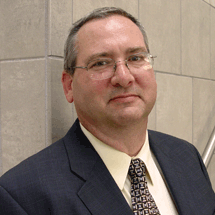 |
brown on green
Greed Killed the Economy
Brown on Green is a regular column written by Free Will Baptist Foundation Director David Brown. The column offers financial advice, addresses hot-button business topics, and answers your finance questions. Contact David with your anonymous question: david@nafwb.org.
|
Once upon a time, banks in the United States lived a very boring life. They expected customers to make a down payment of 20% for a home loan, and those customers actually made those payments to the local bank where they got the loan. In turn, banks paid a modest dividend to happy investors who understood how banks worked.
In those days, people bought houses because they needed a place to live and chose to buy rather than rent because they eventually wanted to own their own homes. People knew their houses would appreciate slightly more than inflation, making the purchase of a home a good long-term investment as well as a place to live.
In recent years, something happened to this scenario. Banks began to notice other industries paying much higher dividends, with highly appreciated stock prices. Bank investors began to demand similar high dividends and wanted to see their stock prices go up as well.

As a result, banks decided to extend home loans to people who could not qualify for a normal loan and charge them a higher rate of interest. Investment banks like Lehman Brothers or Countrywide were happy to buy these loans and resell them to investors, taking a cut from the profits. Banks liked the money these loans generated so they began to look for other similar opportunities to make money fast.
Because almost anyone could get a loan, builders could not keep up with the demand for housing and prices began to rise, especially in desirable locations. As a result, banks created a new loan that required homebuyers to pay only interest on their loans. These loans became especially popular in hot markets where home prices were jumping 10-15% a year. Again, these loans were sold mostly to investment banks, but even some of the larger banks began to put these high-risk loans into their portfolios. They were not worried about interest only loans because the home prices were rising so fast.
Interest only loans made it even easier to get loans. This caused home prices in some areas to rise even faster, climbing as much as 20% in a single year. Banks saw yet another opportunity to charge even less than the interest for high-end properties because their customers only planned to live in their homes for a few years. Usually these loans had a balloon payment due in 3 to 5 years (when they expected the house to be sold), and everyone enjoyed a piece of the appreciation.
Real estate speculators quickly took advantage of “interest only” or “less than interest only” loans, assuming the high appreciation rates would continue. They considered these home loans a short-term investment. When this “house of cards” began to fall, investors simply walked away from these loans because they were not interested in the house as a home. In some cases, they never even lived in the home. To them it was just a bad investment.
Many homebuyers saw their homes appreciating rapidly and foolishly took out home equity loans based on the maximum value and spending the money foolishly rather than improving their home. When the real estate market began to collapse, many people in these circumstances either walked away or fell behind on their payments and foreclosure forced them out.
An epidemic of collapsing loans soon created a vacuum. Housing prices began to decline—rapidly in the formerly desirable hotbeds of new constructions. Banks that built their financial stability on high-risk loans began to fail, or had to be propped up by the Federal government because their loans did not maintain their value.
The result? The United States now finds itself in the grips of a recession while so-called experts shake their heads and ask “How could this happen?”
It's simple—greed killed the economy.
About the columnist: David Brown is the director of the Free Will Baptist Foundation. Learn more about how the Foundation can help you give more effectively at www.fwbgifts.org.
|

